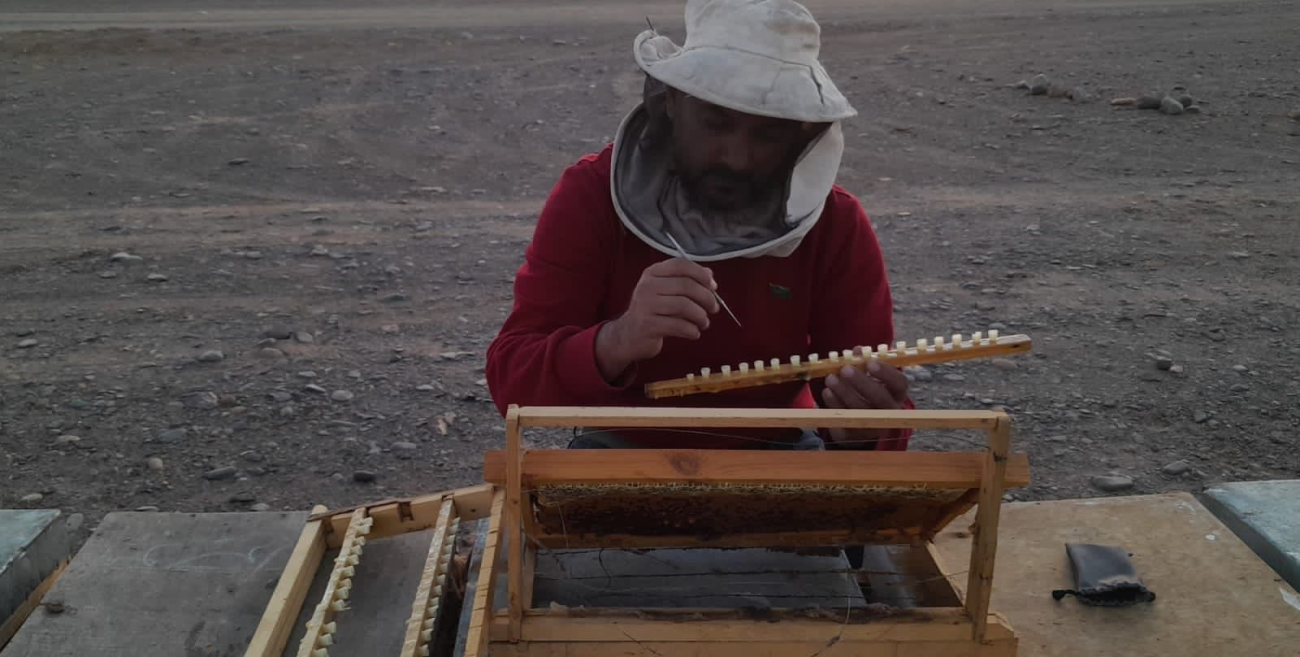Model Innovative Beekeepers Help Protect Saudi Arabia's Indigenous Bee Race

FAO Sustainability Rural Agricultural Development (SRAD) project delivered field experience training on honeybee queen-rearing techniques to Saudi beekeepers.
AL-BAHA - Calamitous impact of climate change, dreadful spread of honeybee disease and unwise application of agrochemicals contribute to the declining number of honeybee colonies across the globe. Rising demand for honeybee colonies to meet the demand for local honey products forces the Kingdom of Saudi Arabia imports annually more than one million exotic package bees. Importation of exotic bees poses threats as they spread various honeybee diseases and dilute their genetic resources to Saudi Arabia's indigenous bees.
Under the development agenda, the Kingdom of Saudi Arabia mainstreamed the importance of minimising the dependency on imported exotic bees. Rearing queens is an integral part of beekeeping not only contributes to increasing colony numbers but also improves the productivity of bee colonies through selective breeding. Consistent with the country’s priorities, FAO Sustainability Rural Agricultural Development (SRAD) project delivered field experience training on honeybee queen-rearing techniques to more than 100 participating beekeepers. The project set up pilot demonstration apiaries at five selected model beekeepers’ farms and provided them with essential equipment for queen rearings such as modern beehives, nuclei hives, Jenter frames, grafting kits and others. The introduced queen-rearing technique was found to be very effective and provides good opportunities for the model beekeepers to apply and enable the learned knowledge, skills, techniques and real experiences to be spread and shared with other fellow beekeepers hence solving their colony shortages.
“It is amazing to hear that one of our model beekeepers, Salem Al Awaji from Qilwah Governorate in the Al-Baha Region is applying the training and is already able to produce and sell around 1 000 virgin queens to the local market today after starting rearing honeybee queen bees using the grafting technique three months ago,” says Kakoli Ghosh, Chief Technical Adviser, SRAD Project.
As part of SRAD scale-up plan, the project will continue grooming more model beekeepers to share their knowledge and skills experiences with a broader number of beekeepers in a wider area of the country. The model beekeeper’s exemplary approach is applied for the effective dissemination of experiences through the organization of field days at the model beekeeper’s apiary. As more beekeepers are technically supported they will be able to produce a stable number of colonies to supply to the markets. This will contribute to reducing the dependency on importation as well as protect the indigenous bees of Saudi Arabia.




